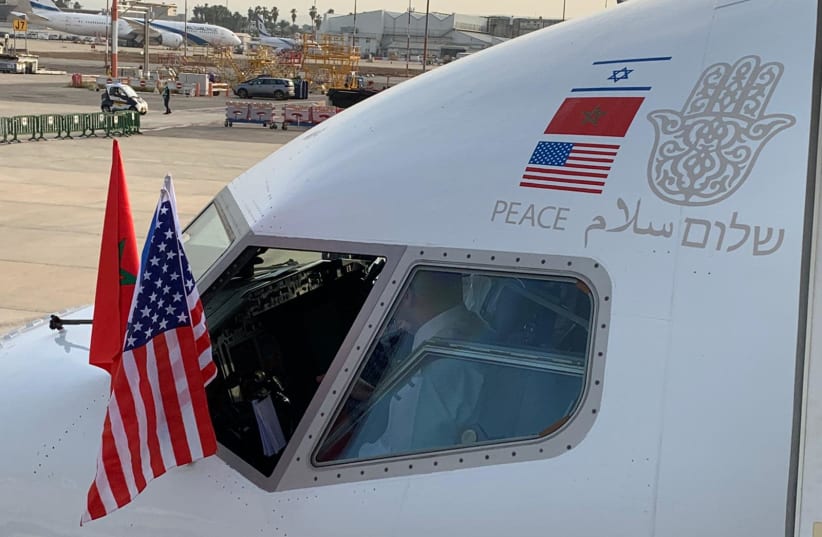It was loud and clear. He even said that the government “is keen to fight against the entry of any Israeli product into Morocco.” The proof? The government, he said, never granted a license to any entity wanting to import dates or other Israeli products.
Years later, as we’re stepping into 2020, the current prime minister, Saadeddine El Othmani (who succeeded Benkirane), signed agreements between Morocco and Israel during a ceremony chaired by King Mohammed VI, in the presence of US President Donald Trump’s senior adviser Jared Kushner and Prime Minister Benjamin Netanyahu's national security advisor Meir Ben Shabbat. It is definitely another era. But it is also an opportunity for Islamists to step up to the plate.
The Movement of Unity and Reform (MUR), which is the religious arm of the El Othmani’s PJD (Justice and Development) Party, has clearly expressed its rejection of what it calls “normalization” with Israel. It is also the party's position, but with a small variation.
Benkirane has intervened to defend El Othmani and put out the flames that have been raging within the PJD.
“This is not the time for infighting. The broader national interest must prevail over any other partisan consideration,” he wrote on Facebook, recalling the press release published by the party’s General Secretariat, welcoming the decision to restore ties with Israel.
ALL OF THESE events took place before the announcement of reconciliation between the Gulf countries. Saudi Arabia, the United Arab Emirates, Egypt and Bahrain have agreed to bury the hatchet and resolve the dispute with their neighbor Qatar. This reconciliation has the potential to bring about a major change in some of the Islamist parties’ positions.
There appears to already be a crack in the Islamist front reinforced by Turkey, which had accounts to settle mainly with Saudi Arabia and Egypt. The reconciliation with Qatar has given the Turkish Islamist president pause for reflection. He has softened his positions and shown his willingness to reach out to the countries that, in the past, he frequently attacked.
The same applies to the Qatari news channel Al Jazeera which has changed its tone, even talking now about “Moroccan Sahara” instead of “Western Sahara.”
The end of 2020 and the beginning of 2021 were therefore good for Arab countries and for Israel.
For certain, the US administration was instrumental in creating this new vibe. Kushner put a lot of effort into this endeavor. While the benefits for Israel will go beyond the Arab countries, the whole of Africa is opening up to Arab-Israeli investments and economic exchanges.
Netanyahu will thus be able to accomplish his African project, hampered for a long time by some African states’ positions based on Arab countries and their fight against Israel.
ISRAEL'S EXPERTISE in the area of security has opened up attractive markets for the country, which has several other cutting edge industries and services that are useful to African countries.
The expertise in hydraulics, clean energy, agricultural technology and other sectors allows the country to expand its interventions across the continent. Moreover, Israel can rely on Morocco's existing contacts with most African countries, where it has built up a large banking network and several cooperation agreements with both French-speaking and English-speaking countries.
On the other hand, African countries are also looking for serious partners, who believe in egalitarian and mutual exchange, to create a counter-balance to other countries’ operations in the continent such as China, whose interventions in Africa have caused discontent.In the Democratic Republic of Congo (DRC), for example, it is not uncommon to see minors protesting against Chinese executives who have a tendency to cut corners when it comes to working conditions and wages. A viral video of the former governor of Katanga, Moïse Katumbi, showed him lecturing a Chinese manager who would put Congolese to work without security equipment. The governor had given the manager a strict deadline for compliance beyond which he would close the factory.
Africa is also suffering from the impact of climate change, which triggers population displacement and illegal emigration mainly to Europe. An improved management of natural resources would allow several countries to stabilize their populations and create economic activities likely to pave the way to sustained growth. Here, too, the Moroccan experience in soil and fertilizer management can be useful, and is already being implemented in some countries. For its part, Israel could contribute with its agricultural know-how.
But Africa will most need help from Morocco and Israel in the fight against terrorism. Both countries are highly qualified to help their partners in this area where the fields of action are very broad. The Moroccan networks combined with Israeli technology and the financial clout of the Gulf countries – finally reconciled – can usher in a new era for development in Africa.
This article was originally published in l’observateur.ma on January 14, 2021.
Hakim Arif is Managing Director of L’Observateur du Maroc et Pouvoirs d’Afrique.
